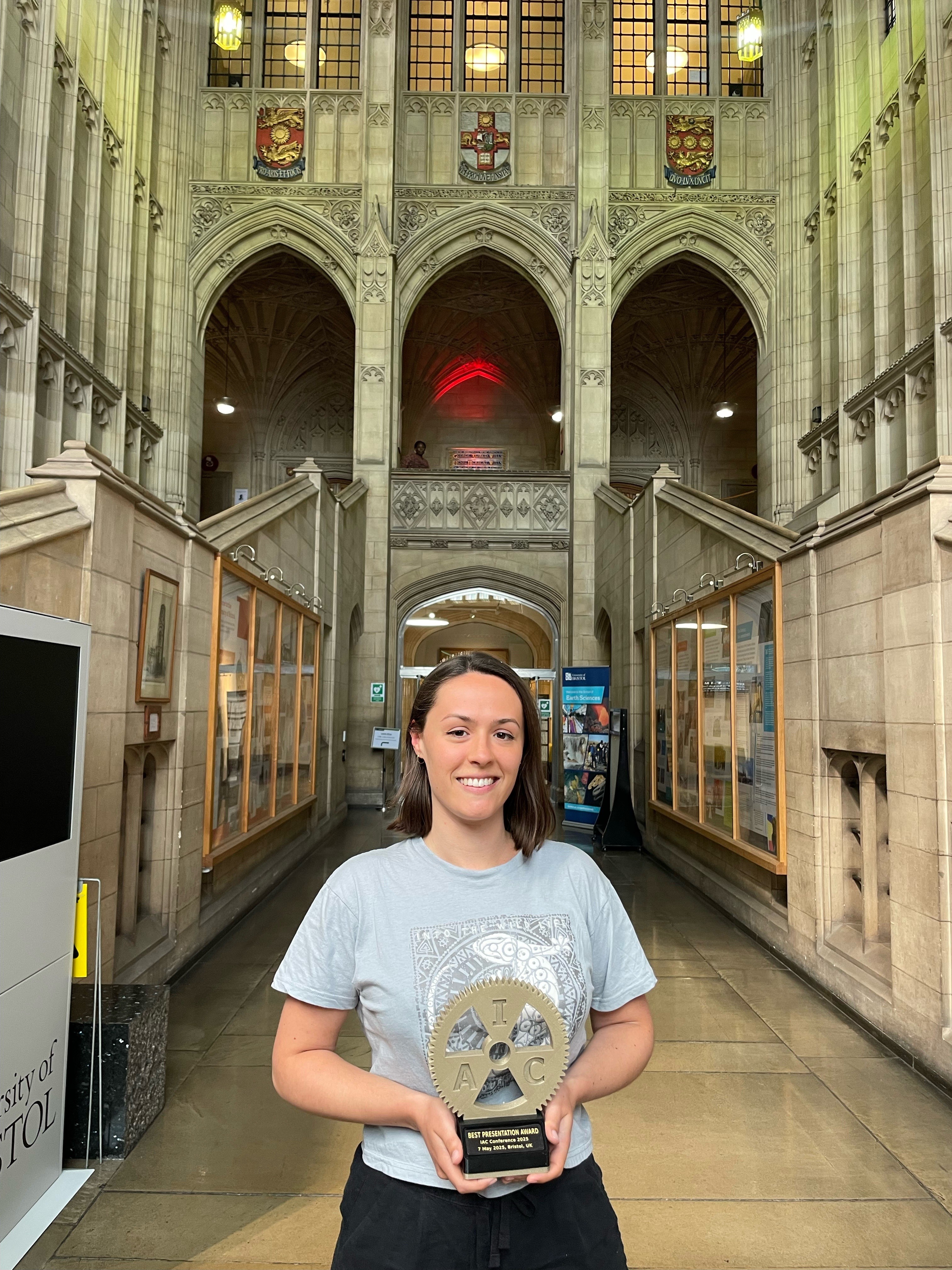This month, the Interface Analysis Centre research group at the University of Bristol ran their annual conference, celebrating and showcasing a wide range of PhD projects taking place across a variety of schools and disciplines.
Evie Read, a PhD student in the School of Earth Sciences at Bristol, was awarded best oral presentation on the day after delivering an engaging and informative talk on forensic seismology. Evie is also part of the Nuclear Threat Reduction Network (NTR-Net) funded community of students. Following the event, Evie has shared some thoughts on the day and her project.

How did it feel to be awarded the best presentation at the conference?
I was very grateful to be awarded best presentation, it was an unexpected win. As I am mostly nuclear adjacent, being able to communicate my science in a way that is accessible and understandable to people in the wider field is really important to me and I’m glad I was able to achieve this.
Can you explain your PhD aims briefly and how important it is that forensic seismology is developed to give a faster, more accurate response?
My PhD title is ‘Optimising Machine Learning for Forensic Seismology’. Forensic Seismology has been around since the 50’s and it’s a branch of seismology developed based on the need to identify and verify potential violations of the Nuclear Test Ban Treaty. Especially since 1996, when all testing of nuclear explosives were banned. Forensic seismology has been a huge driving force behind the improvement of our ability to record seismic activity. More data and better coverage are hugely beneficial to being able to understand more about explosions, however we collect data at a rate faster than we can process by traditional methods that rely heavily on human analysts. So this is where machine learning can step in and ramp up the real time detection which can improve response time, and this is what I am working towards.
What do you hope to do beyond your PhD?
Beyond my PhD I would love to stay within research and learn more about this fascinating field. However, with the skills I will have learnt through my time as a PhD student I am confident I am employable I many other fields too.
How has your NTR-Net experience and training enriched your PhD experience?
Being an NTR-Net student has allowed me access to training I otherwise would have never had the opportunity take part in. Therefore I’m able to get a picture of the wider context of how my science fits into nuclear threat reduction. Additionally, I’m interacting with people in all areas of science that I had little to no knowledge of previously, which I hugely appreciate and find incredibly interesting.
Congrats again to Evie!

